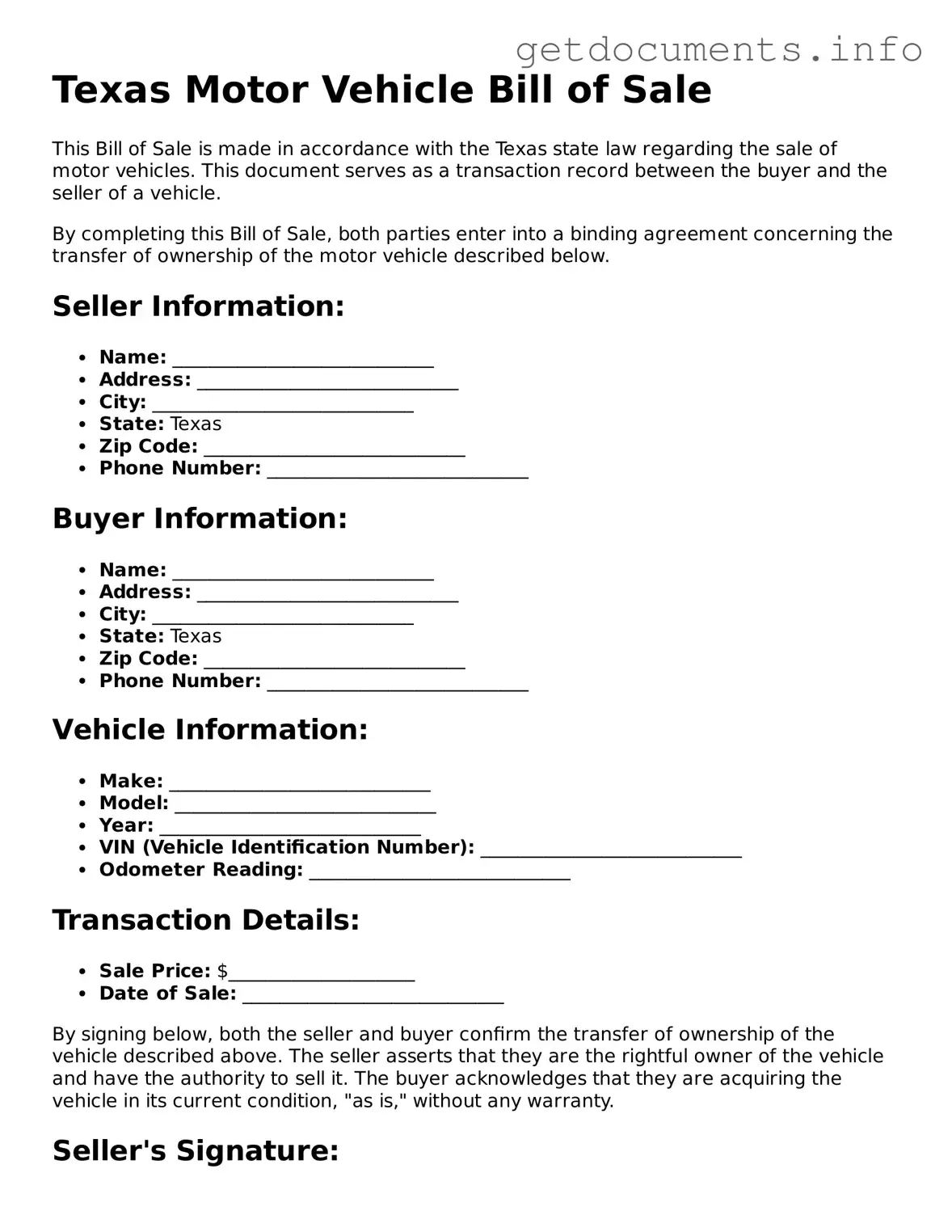Free Motor Vehicle Bill of Sale Template for Texas
The Texas Motor Vehicle Bill of Sale form is a legal document that records the transfer of ownership of a motor vehicle from one party to another. This form serves as proof of the sale and includes important details such as the vehicle identification number, sale price, and the names of both the buyer and seller. To ensure a smooth transaction, it is essential to fill out this form accurately.
Complete the Texas Motor Vehicle Bill of Sale form by clicking the button below.
Access Motor Vehicle Bill of Sale Editor

Free Motor Vehicle Bill of Sale Template for Texas
Access Motor Vehicle Bill of Sale Editor
Got places to be? Complete the form fast
Fill out Motor Vehicle Bill of Sale online and avoid printing or scanning.
Access Motor Vehicle Bill of Sale Editor
or
⇩ PDF File
